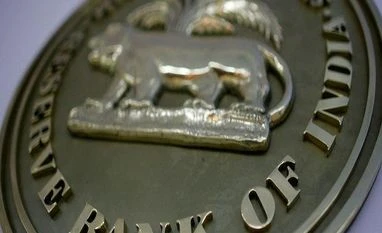Former Deputy Governor R Gandhi on Friday said the Reserve Bank is unlikely to roll back its ultra-loose monetary policy at least in FY22, as the economy is still below the pre-pandemic levels.
Gandhi also pointed to RBI DG Michael Patra's recent statement, where he made it clear that the central bank will prefer to have a clearly communicated glide path rather than taking any strong actions.
With the GDP growth rate going higher albeit, at a lower base and inflation being very high, there was speculation about when would the RBI withdraw the accommodative measures adopted in the face of the pandemic, which resulted in high liquidity.
Watchers also point to the delay in the withdrawal of similar measures in the aftermath of the 2008 global financial crisis, which created problems, including high inflation.
In my assessment, the normalisation of ultra-loose monetary policy in India is several quarters away. Definitely not this fiscal, Gandhi said at an online event.
The MPC (monetary policy committee) is very firm that sufficient indications will be available to the market on whether they are going to change their accommodative stance, or tightening when it is going to happen, the pre-warning will certainly be available, he added.
More From This Section
Gandhi said the economy is yet to reach the pre-pandemic levels, which is the first milestone to be crossed before starting to tighten.
A good indicator of a pick-up in the economic growth will be the bank credit growth, he said, adding that so far this fiscal, the system is in the negative territory on this.
The high inflation is softening as seen in the last print of 5.3 per cent for headline inflation, Gandhi said, adding that the price rise is being looked at as a transient factor because of the supply-side issues.
With the high liquidity and the consequent negative returns on the real interest rates, Gandhi said the investors and savers will have to accept the new reality and realign their bets accordingly.
"When we have a low inflation target and when we achieve that, the income from the fixed deposits investments will be very less and savers will have to opt for taking higher risks," he said, adding the same is evident in the shift in savings to mutual funds, equity and other asset classes.
The millennial segment is even more risk-taking and is investing in startups and cryptocurrencies, he said.
Gandhi said the non-bank lenders have got over the reverses of the IL&FS episode and it is advantage NBFCs over banks right now.
The banking system is ceding share of the overall credit flow in the market at present, as others like non-bank lenders, corporate debt markets etc get more active, he said, adding that this does not mean that it is suffering on the growth front.
With digital platforms getting into accepting deposits, Gandhi said it is essential for ensuring that the funds collected on behalf of banks go to an escrow account and are not kept with the platforms, warning that China had suffered on this count some years ago.
)